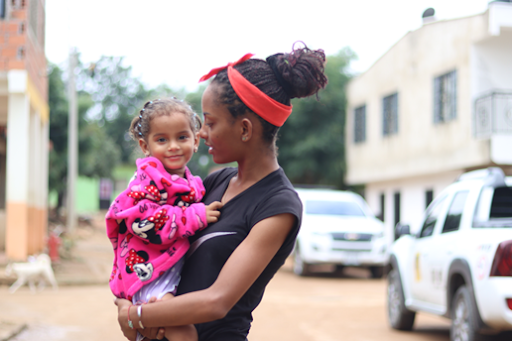
Exploratory Design for Self-Managed Contraception in the Venezuela Crisis Region
Understanding how self-care products and services can support the contraception and abortion needs of migratory women and girls with limited or unpredictable access to health care facilities.
Problem
Women and girls in transit often have intermittent access to formal healthcare facilities or may not feel comfortable accessing public health services due to biases or poor care. This can present a risk to their contraceptive coverage and associated health needs. Self-care products and services allow women and girls to manage their contraceptive coverage without direct administration by health providers, and the promise of sexual and reproductive health (SRH) self-care for women on the move has been suggested by our research across Nigeria, South Sudan, and Uganda.
In Nigeria, women are already using self-managed contraception in anticipation of future displacement and/or planned travel. In South Sudan and Uganda, frequent migration to and from each country suggests unique and underserved client segments and use cases for SRH self-care. These findings prompted the SRH GRIP and design teams to ask: How might SRH self-care meet the needs and desires of migrant women and girls with unpredictable or uncommon access to health services?
With 7.7 million Venezuelans displaced globally, the humanitarian crisis in Venezuela has become one of the largest displacement crises in the world. In Colombia in 2023, 53% of the 1.5 million recorded Venezuelan women migrants lacked access to national medical services; and in Peru, 25% of the 1.6 million migrants are women and girls of reproductive age who face numerous barriers to accessing SRH care both during their journey and after. Given the scale of the need and the opportunity to explore multiple migration corridors, the SRH GRIP and design team focused the research on the Venezuela Crisis Region (VCR).
Why Exploratory Design?
Currently, the demand for innovative ideas is driven by funding opportunities, often with tight turn-arounds–conditions not well-suited for looking at persistent challenges through fresh eyes or generating new, ambitious, and potentially risky ideas. As a result, proposals tend to reflect incremental changes to existing interventions.
An alternative is a user-centered design-driven exploratory phase to pre-emptively and purposefully understand challenges through the eyes of clients, identify fresh opportunity areas for intervening, and generate a long list of early-stage innovation seeds. The seeds of innovative solutions it generated can be drawn upon by country programmes, the SRH team, technical advisors, fundraisers across the IRC, and even partner organizations. Our research focused on the journey of women and girls traveling through Colombia to Peru, concurrently in 3 sites representing different experiences in women and girls’ journeys, contraceptive access, and factors affecting their uptake of health services.
Early Stage Innovation Seeds and Next Steps
Our ideation sessions with clients, providers, and partners resulted in more than 60+ early stage ideas which were later consolidated into 22 innovation seeds. The SRH and design teams then shortlisted 6 ideas for further prototyping with clients.
The main themes in our innovation seeds included: increasing awareness of self-managed contraception before, during and after their journey; improving access to self-care products and services; improving quality and desirability of existing services and products; and transforming norms, improving communication, and building an enabling environment for self-care.
Going forward, we will be adapting, integrating, and testing the innovation seeds within current IRC programs and using them in new business development proposals. The SRH team is planning to disseminate our results and the “innovation seed bank” at the regional and global levels and convene a meeting with innovative partners to further ideate priority innovation seeds.
Project Timeline
IRC facilitated a kickoff workshop in Bogota with all team members.
All design data collection tools were designed, piloted and used during the first round of data collection in Cucuta, Bogota, and Lima in December 2023.
Donors
- Airbel Innovation Fund